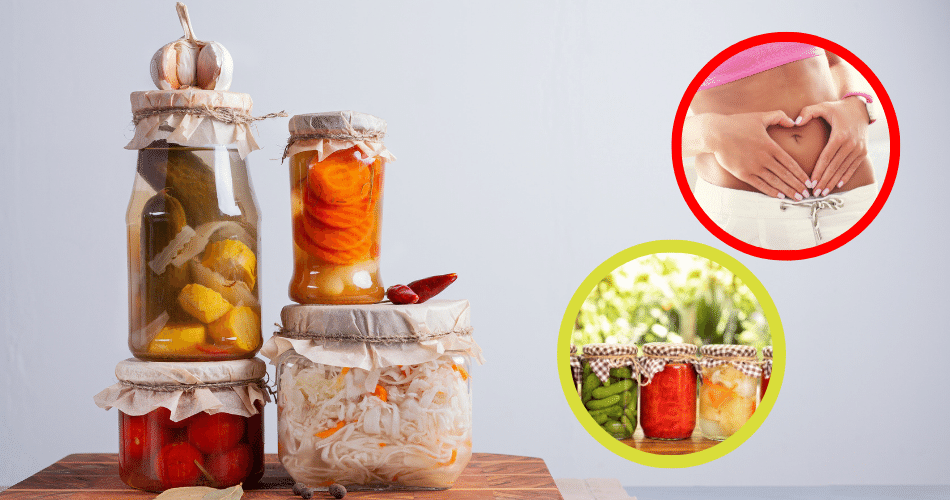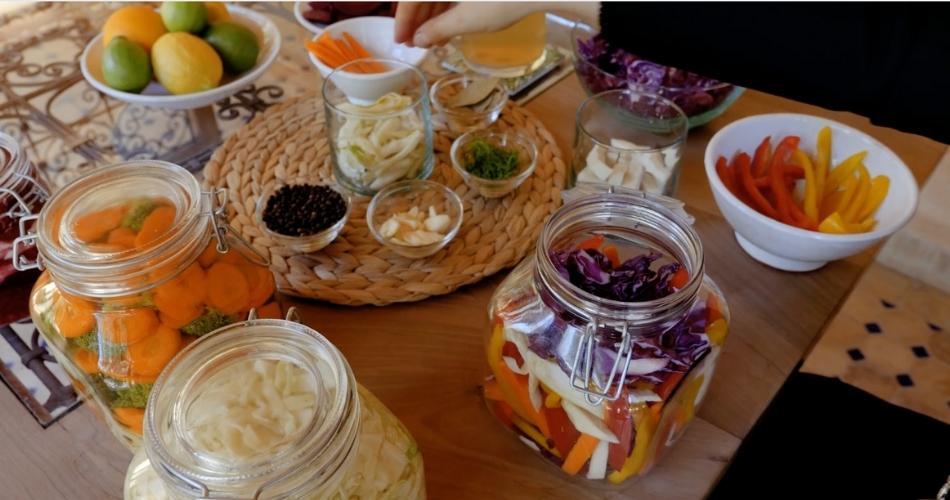
Fermented vegetables are a great way to add extra probiotics to your diet. Probiotics are beneficial bacteria that help keep your gut healthy. Fermented vegetables are also a good source of vitamins and minerals. They are easy to make at home and can be a great addition to any meal.
Fermentation is a process that breaks down the carbohydrates in vegetables into lactic acid. This process gives fermented vegetables their characteristic sour taste and increases their shelf life. Fermented vegetables are also a good source of probiotics, beneficial for gut health.
What are Some Common Fermented Vegetables?

Many vegetables can be fermented. Some common examples include cabbage, carrots, cucumbers, and peppers. Fermented vegetables are often used in traditional dishes worldwide, such as sauerkraut, kimchi, and pickles.
Which Vegetables to Ferment? Many vegetables can be fermented, but some are better suited for fermentation than others. Cabbage, carrots, beets, and turnips are excellent vegetables to ferment. Cabbage is the most popular vegetable to ferment, and for a good reason.
It is highly nutritious and easy to ferment. Carrots and beets are also good vegetables to ferment, and they have the added benefit of being high in antioxidants. Turnips are harder to ferment than the other vegetables, but they are still a good choice.
Fermenting vegetables allows having your own food supply even in times of crisis. Click here to discover 126 superfoods that you can store without refrigeration for years (a.k.a. The US Army’s forgotten food miracle).
6 Amazing Benefits of Fermented Vegetables

Vegetable fermentation is a process that has been used for centuries to preserve food. The process involves allowing vegetables to sit in a brine (saltwater) solution for some time, during which the natural fermentation process will occur.
There are many benefits to fermentation, both for the individual and the environment.
This process preserves the vegetables and enhances their flavor and nutritional value.
- Fermented vegetables are an excellent source of probiotics, beneficial for gut health.
- They are also easier to digest than non-fermented vegetables, increasing their nutrient absorption.
- In addition, fermentation is a sustainable way to preserve food.
- It requires no electricity or other resources and can be done on a small scale.
- Fermented vegetables will keep for several months and can be a valuable addition to a long-term food storage plan.
- It is also a way to reduce your carbon footprint and support sustainable food practices.
If you are looking for a way to improve your diet and increase your nutrient intake, fermentation is a great option.
Consumption of Fermented Vegetables

Fermented vegetables are also a good source of vitamins and minerals, and they can add a delicious tangy flavor to your meals. Some of the best-fermented vegetables to consume are sauerkraut, kimchi, and tempeh.
Fermented vegetables are a great way to add beneficial probiotics to your diet. Probiotics are live bacteria that are essential for gut health. They can improve digestion, boost immunity, and even help weight loss.
Fermented vegetables are easy to make at home and delicious to get your probiotics. Add vegetables to a jar or container, add water and a little salt, and let them ferment for a few days. You can then enjoy them as a side dish, in a salad, or as a sandwich.
Should you consume fermented vegetables?

There are many benefits to consuming fermented vegetables, including improved digestion and gut health, increased nutrient absorption, and a boost in immunity. Fermented vegetables are also a great source of probiotics, beneficial bacteria that help keep your gut healthy.
Some research even suggests that consuming fermented vegetables may help protect against certain types of cancer. So, if you’re looking to improve your overall health, consuming fermented vegetables is a great place to start. Just be sure to choose a high-quality product from a reputable source, and start with a small amount if you’re new to fermentation.
How to Ferment Vegetables?

There are many ways to ferment vegetables, but the most common method is to submerge them in water and allow them to sit for some time. The length of time will vary depending on the type of vegetable and the desired level of fermentation. Still, generally speaking, most vegetables will be ready to eat after a few days to a week.
You’ll need a clean, food-grade container large enough to hold your vegetables to get started. Make sure to clean and sterilize your container before use. Next, add your vegetables to the container and cover them with water.
You can add a weight on top of the vegetables to keep them submerged if needed. Finally, cover the container and allow it to sit at room temperature for the fermentation process.
Once the vegetables have fermented to your liking, transfer them to a clean container and store them in the refrigerator. Fermented vegetables will keep for several months in the fridge. Enjoy them as is, or use them in your favorite recipes.
Tips to Ferment Vegetables

There are many different ways to ferment vegetables, and each method will produce slightly different results. Here are a few tips to help you get the best results:
- Use fresh, crisp vegetables for the best flavor.
- Choose an excellent, dark location for fermenting.
- Keep the vegetables submerged in the brine (saltwater) to prevent mold from forming.
- Check on the vegetables regularly and skim off any mold on the surface.
- Store the vegetables in a cool, dark place when they are finished fermenting.
Did you know? You can also use vinegar to ferment vegetables and enjoy its benefits.
Fermented Vegetables are Good for Your Gut!
Fermented vegetables have been around for thousands of years. However, a recent trend has seen people fermenting vegetables for their probiotic benefits. Probiotics are good bacteria that are naturally present in the body.
These good bacteria help keep the digestive system healthy and aid indigestion. When you eat fermented vegetables, you increase the number of probiotics in your body.
Tell us in the comments have tried eating fermented vegetables?
